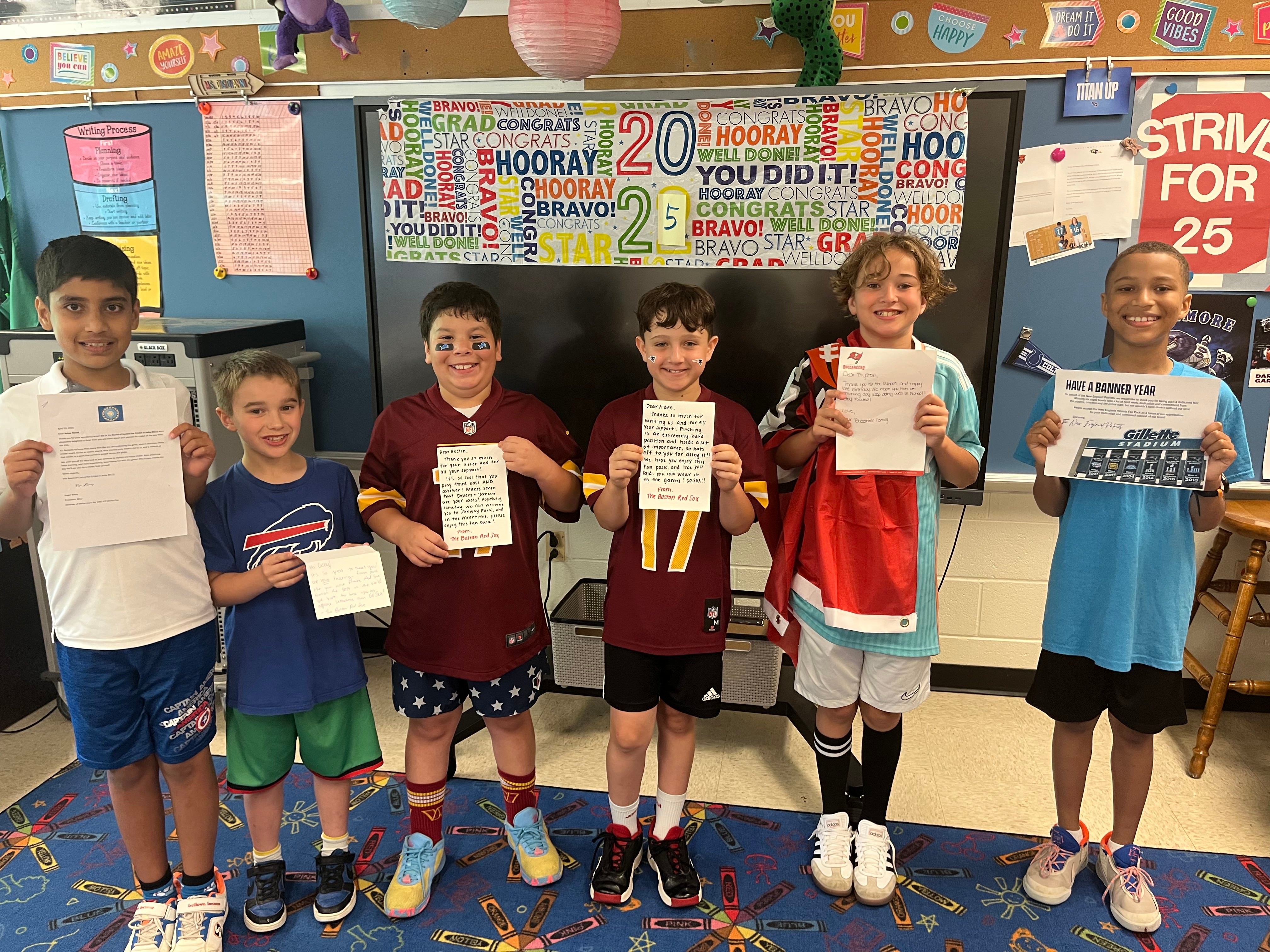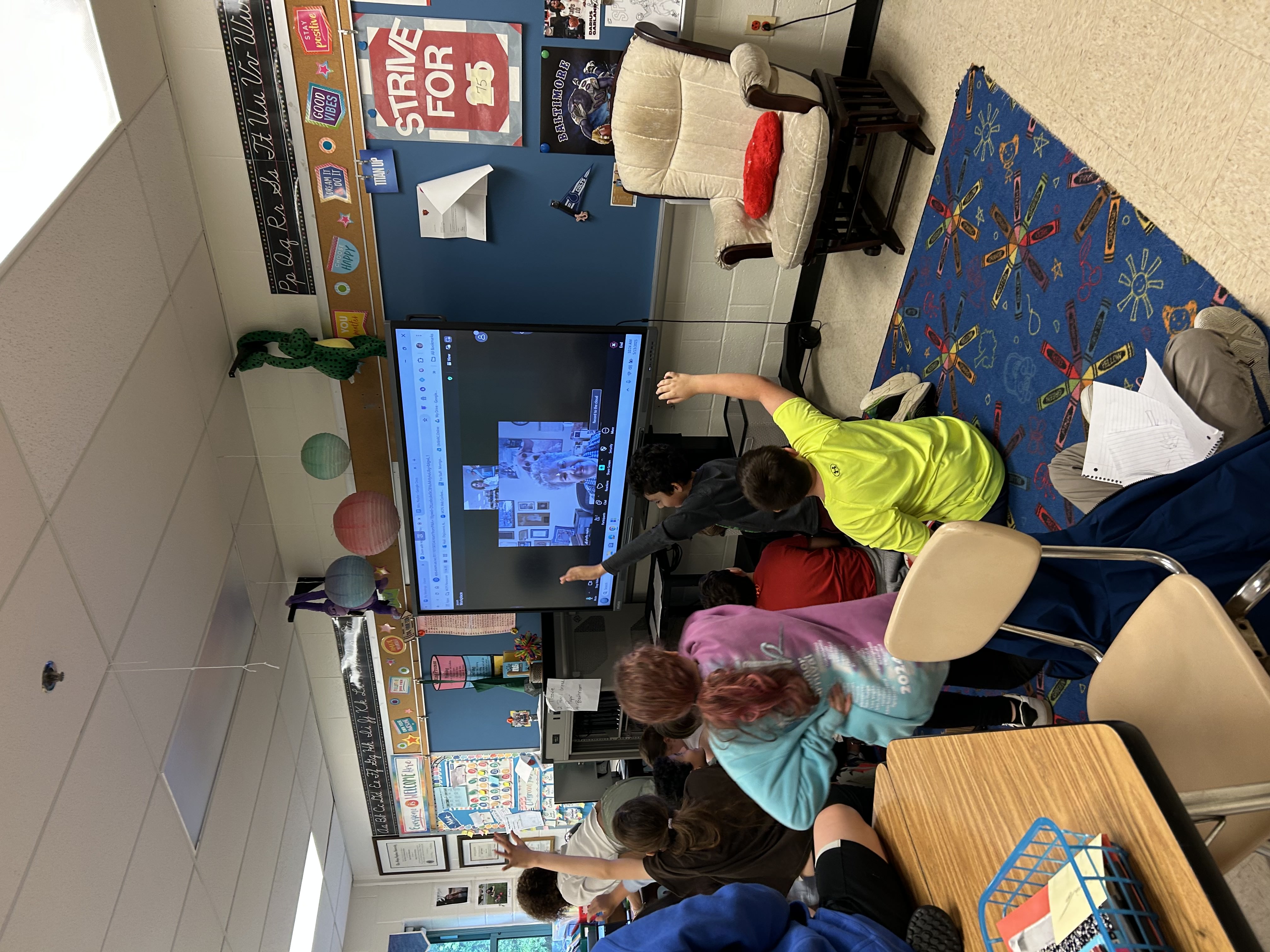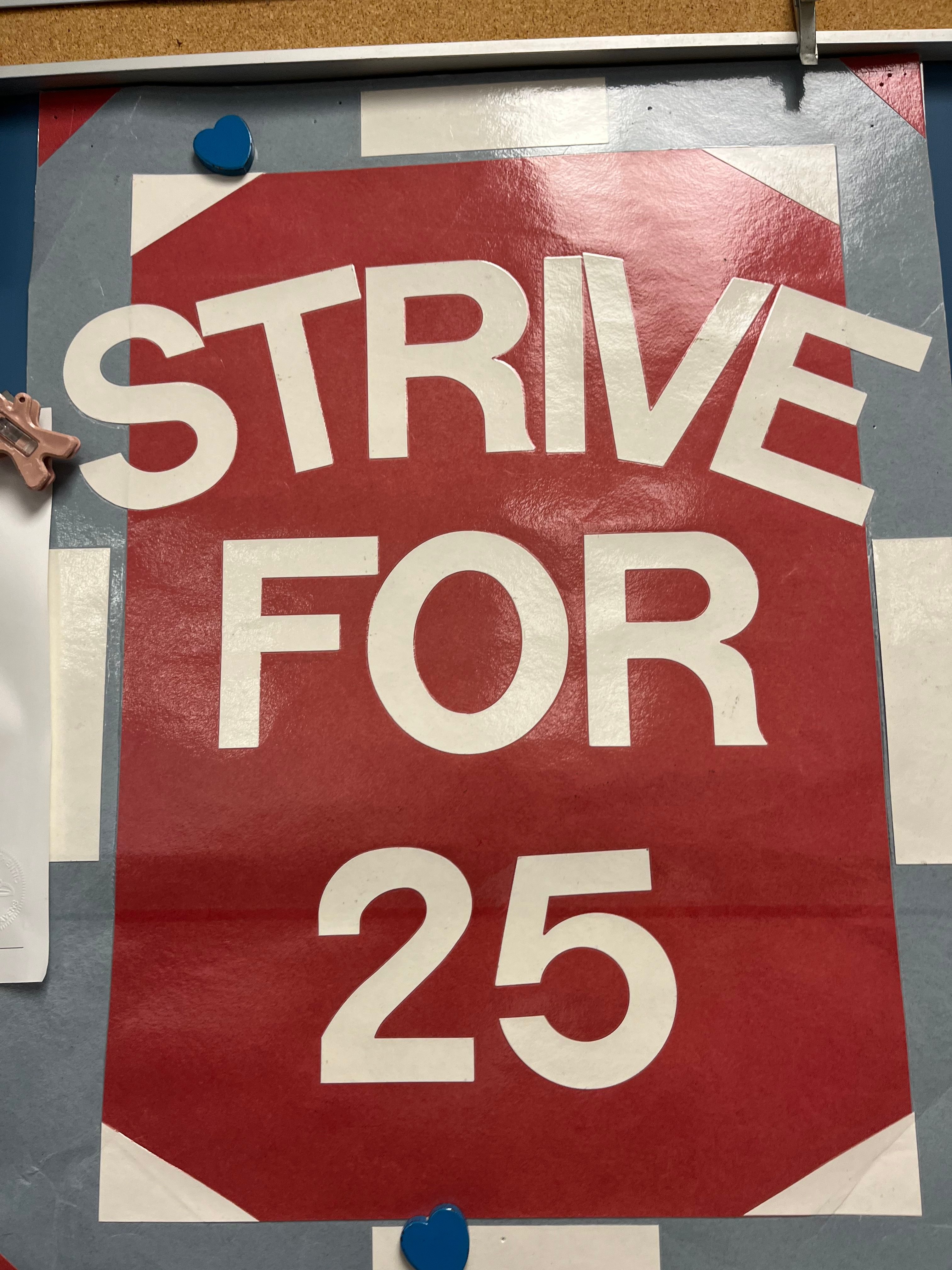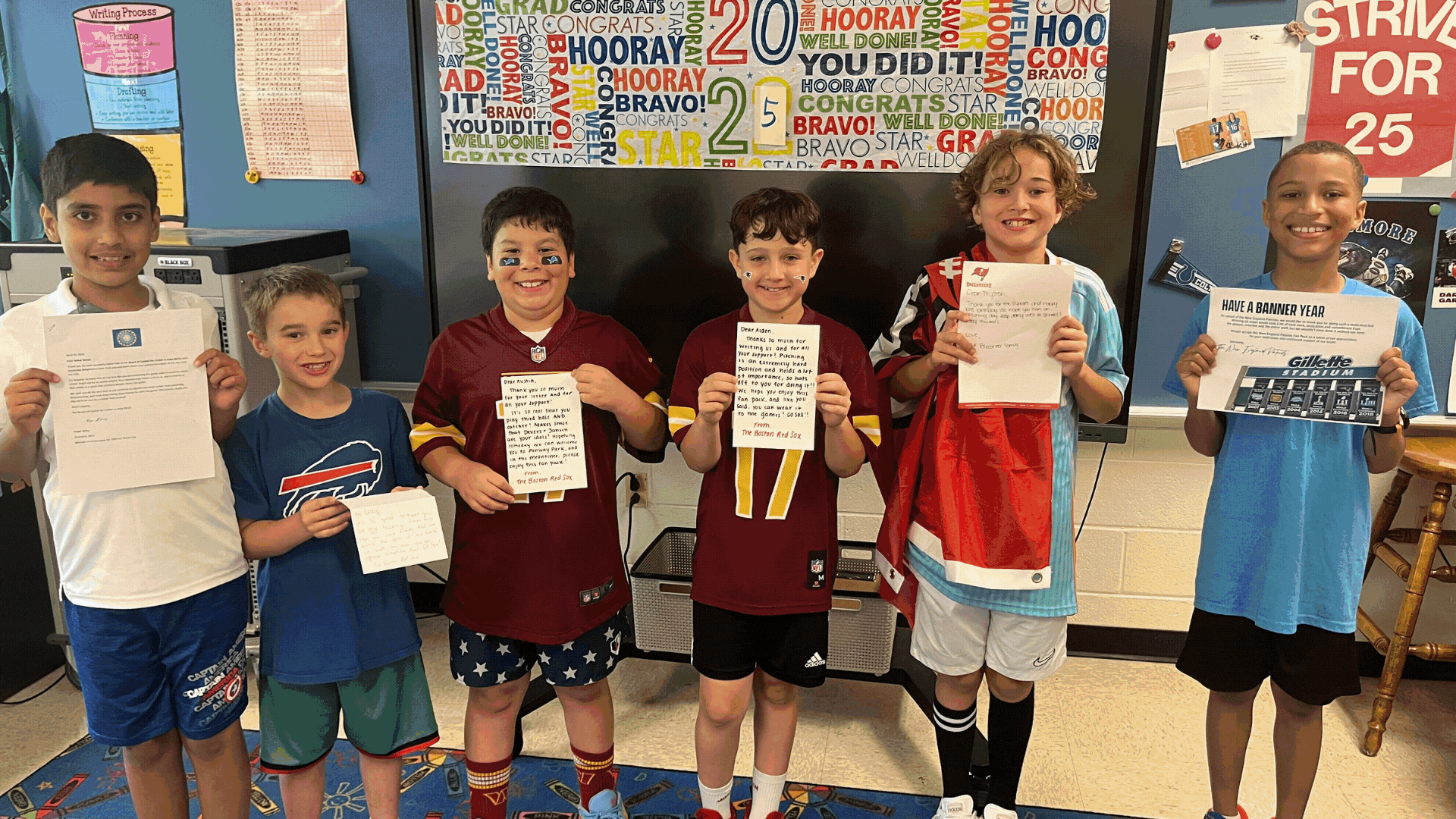Discovering the Magic of the Mailbox at Thurgood Marshall Elementary School

 “You’ve got mail!” No, you haven’t time traveled back to the ‘90s. This phrase brings cheers in Amy Digiovanni’s fourth grade class at Thurgood Marshall Elementary School, as the students eagerly await to see who among them has received a letter.
“You’ve got mail!” No, you haven’t time traveled back to the ‘90s. This phrase brings cheers in Amy Digiovanni’s fourth grade class at Thurgood Marshall Elementary School, as the students eagerly await to see who among them has received a letter.
Over this past year, students in Digiovanni’s class have engaged in some memorable writing experiences. From speaking with a published author to writing to and receiving letters from professional sports teams, their teacher has introduced creative ways to teach reading and writing. Digiovanni supplies the envelope and stamp; all the students need to do is write.
In fourth grade, students read an autobiography to understand how an author’s life can impact and influence their writing. After reading “Shiloh” by Phyllis Reynolds Naylor, students selected to read Naylor’s autobiography “How I Came to Be a Writer.” Students then wrote autobiographies of their own.
Digiovanni discovered that Naylor lives locally and decided to reach out.
“I wrote her a letter and included one of the student’s autobiographies,” said Digiovanni. “We didn’t think we would hear back from her, but we did. The students were excited.”
 Naylor not only wrote back, she also joined the class via Zoom to answer questions—and even mailed the class writing tips, typed on a typewriter.
Naylor not only wrote back, she also joined the class via Zoom to answer questions—and even mailed the class writing tips, typed on a typewriter.
“It was a great experience talking to her and getting good writing tips,” said Harper, a student in the class.
While all of the students were excited to speak with a published author, for fourth grader Ruthie, the moment was especially meaningful and personal. It was her autobiography that Digiovanni sent.
“It was really fun to talk with Phyllis,” said Ruthie. “It was amazing to talk to someone who is published, especially since I want to do that later in life. I learned a lot of good things from her, but the best takeaway was that everything can be a story.”
Ruthie is determined to become a published author by college. “I like writing everything. It helps me channel my feelings and thoughts. I am so elated I got the opportunity to get one of my writings sent to like the Lebron of writing,” she added.
Other students shared similar sentiments.
“Writing helps me express all of my feelings and emotions into a story and make it however I want,” said Tyler.
“I like writing because when you write, all things are possible because no one can stop your mind,” said Kaima.
In today’s world of texts, tablets and immediate responses, letter writing may feel like a thing of the past—but in Digiovanni’s class, it’s alive and well. Opening the mail during class has become a favorite activity for the students and they encourage other students to send letters.
“Kids should write letters because it’s really fun to share moments with friends and family,” said Benjamin.
“I think other kids should write letters so we can reach our goal,” added Aiden.
And what goal is that?
 At the beginning of each school year, Digiovanni launches “Strive for 25,” an initiative that encourages students to write persuasive letters to sports teams. Inspired by her mentor, the goal is simple but ambitious: get 25 responses by the end of the school year.
At the beginning of each school year, Digiovanni launches “Strive for 25,” an initiative that encourages students to write persuasive letters to sports teams. Inspired by her mentor, the goal is simple but ambitious: get 25 responses by the end of the school year.
“If we reach that goal, then we have a party,” said Digiovanni. As of June, they more than doubled that goal with 58 letters from teams like the Baltimore Ravens, Boston Red Sox, Chicago Bears, Green Bay Packers, Indianapolis Colts, Michigan Wolverines, New England Patriots, New York Jets, Tampa Bay Buccaneers and many more. They celebrated reaching and surpassing their goal by playing football games, testing their knowledge with football trivia and showing off their football swag.
“It feels so good to receive a letter because the team acknowledged your letter and we get things back from the team,” said Evelyn.
Along with the letters, teams have also sent pictures, stickers, pencils, jackets, games, hats, scarves, pennant flags, field dirt and more.
“You’ve got mail!” isn’t just a nostalgic catchphrase—it’s a spark of joy, a sign that someone, somewhere, read your words and wrote back. In this classroom, that spark is igniting a love for writing that could last a lifetime.

